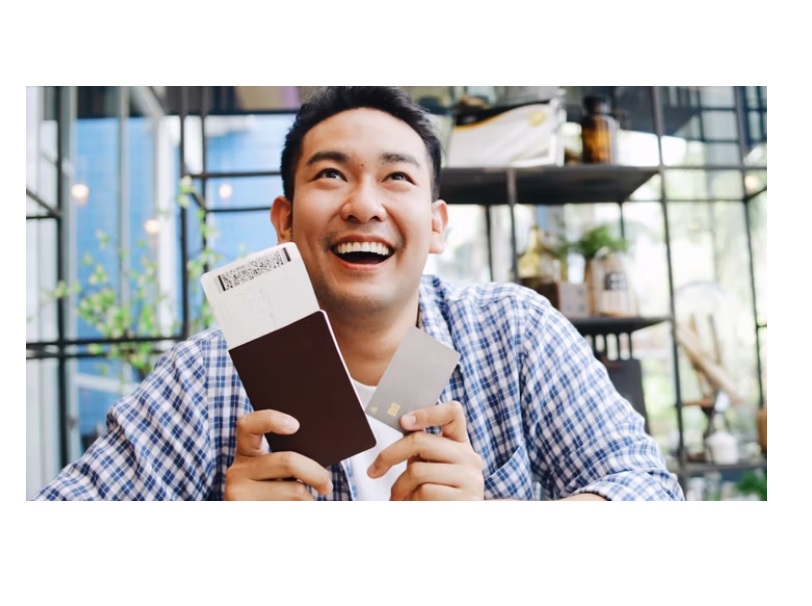Photo courtesy: AIA
“An OFW is not just a worker; they are unsung heroes building dreams for others.” – Anonymous

Our OFWs continue to be the biggest contributors to our economy. In 2024 alone, their remittance rose to a record of $38.34 billion. With this number, one would think that our OFWs are financially well-off and secured. That they have realized or are near to realizing the dreams that made them work abroad and endure the pain of being away from their loved ones.
But the here are the brutal facts: 8 out of 10 OFWs do not have savings or money set aside for retirement, while 1 out of 10 OFWs end up broke even after years of working abroad. Based on the 2023 BSP report, only 34.9 percent of OFW household were able to save the remittances they received, with only 7.8 percent using their money for investment. No wonder why we continue to hear so many heart breaking stories of our OFWs still in debt and financially struggling.
While there are certain valid factors influencing where and how they allot their funds, OFWs need to have the proper knowledge and guidance on how to protect and grow their hard-earned money, while working abroad. Anyway, it’s every OFW’s goal to come home for good… soon and financially healthy.
The balikbayan boxes have been a symbol of an OFW’s expression of love for their families home. Filled to the brim, from children’s toys to bottles of perfume/lotion, from the latest pair of rubber shoes to the trendiest gadgets, from cans of corned beef to boxes of chocolates, etc, a balikbayan box, is usually an OFW’s way to compensate for their absence. But planning and preparing for a stable financial future is a much better expression of love and concern for your family. I am not saying that OFWs should no longer send goods back home. They still can but they need to strike a balance between spending and saving/investing for a healthy financial future.
It’s fundamental for OFWs to set a measurable financial goal even before leaving for their work abroad to help them focus and avoid unnecessary spending and overstaying. What are they working for – house and lot, child’s education, retirement? How long and often should they renew their contract? How much money should they have upon termination of their contract? A clear answer to these questions will guide them in their earning, spending, saving and investing decisions.
Having enough savings is an important discipline for OFWs. Financially smart OFWs automatically set aside a portion of their salary to savings even before they remit to their family back home. This includes creating a separate emergency fund for unexpected family expenses such as hospitalization or calamities. Not that they don’t trust their families back home to do the savings, but they believe that this is a more responsible way of securing the future of their family. Saving makes them feel confident that they are getting near to some of their goals and that they have accessible funds in case of some unexpected family expenses.
Getting insured should be part of an OFW’s financial journey. Most OFWs are the breadwinners of the family. Their family back home depends on their remittances for their subsistence. When they stop working, money stops for the family. That’s how it works. Unfortunately, despite the fact that insurance is supposed to be mandatory for OFWs, only 53% of them have insurance. What happens then to those uninsured in case they are unable to work and earn, either dure to sickness, disability or death? Moreover, what happens to their dependents? Having life and health insurance is the only way for OFWs to protect and continue the dreams they have for their families amidst life’s twists and turns.
OFWs who are planning and looking forward to retire back home should also consider investing. More OFWs should turn from pure savers to savers-investors. Investing will allow them to grow their money to fund their retirement and other long-term goals. Unlike in the past, they don’t need millions to be investors. There are now a number of affordable investment products available in the market. They just have to choose the right investment products based on their risk tolerance and investment horizon (years they can stay invested). Also, they have to be smart in choosing their investment provider and avoid those promising too good to be true returns in short period of time. Investing helps ensure that our OFWs are able to prepare for their future even with their present obligations.
Being financially healthy is not the sole responsibility of our OFWs. Their families back home play a crucial role. Both of them should have the discipline and the commitment to making sound and healthy money moves. Sadly, most families of OFWs think that working abroad means a bottomless supply of money, resulting to high spending, lifestyle upgrade and debts. Those working abroad always end up paying for the unnecessary money obligations of their relatives back home. This mindset should end. Instead of just waiting for remittances from abroad, families of OFWs should look into earning opportunities that may help them realize their common financial goals.
Our OFW’s journey to financial freedom is not easy. It’s challenging, bumpy, with some detours along the way. While there may be some observed uptrend in OFW’s remittances for savings and investment, still a huge percentage of our OFWs need help in the aspect of financial literacy and planning. Ideally, our government should have an institutionalized financial literacy program for them. But since there’s lack of it, our OFWs should work on it by themselves. They can either seek the assistance of our professional financial advisors or access financial education materials online. Either, there’s a way to financially protect our modern day heroes.





